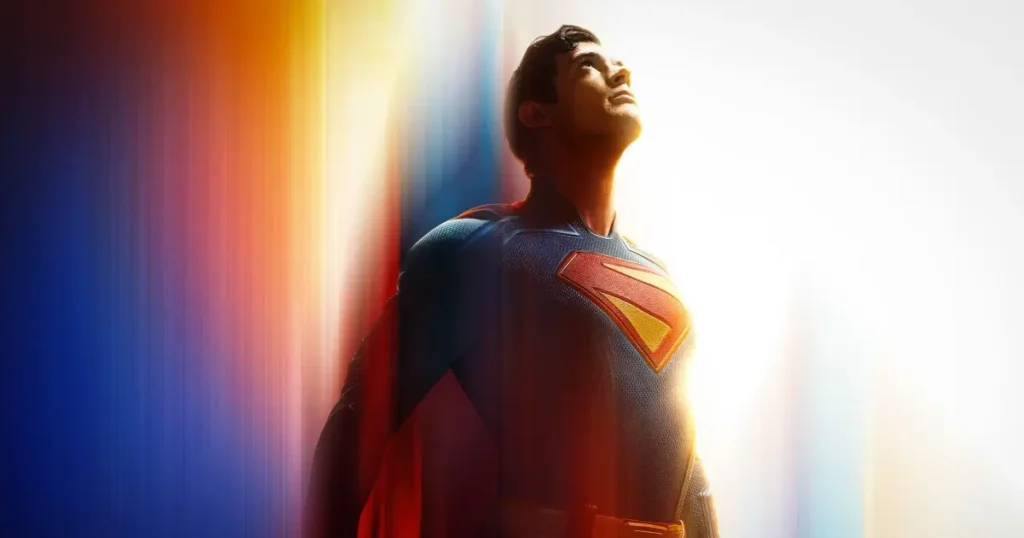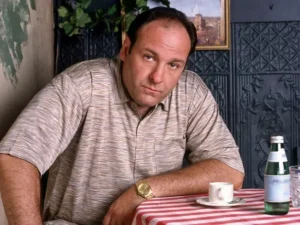
Superman, the Last Son of Krypton and the world’s first superhero, stands as one of the most enduring symbols of hope, justice, and moral courage in popular culture. For over eight decades, this iconic character has inspired generations with his unwavering commitment to protecting the innocent, fighting for truth and justice, and never giving up in the face of seemingly impossible odds. These Superman affirmations draw inspiration from his extraordinary example of using great power responsibly, his dedication to serving others before himself, and his proof that true strength comes not from physical abilities alone, but from an unshakeable moral compass and the courage to always do what is right.
The timeless appeal of Superman lies in his embodiment of the highest human ideals while remaining fundamentally relatable through his dual identity as Clark Kent. Despite his god-like powers, Superman chooses to live among humanity, to care for individual people as much as he cares for the world, and to use his abilities in service of others rather than for personal gain. His story demonstrates that heroism is not about the powers you possess, but about the choices you make and the values you uphold when faced with challenges and temptations.
These Superman affirmations will help you cultivate the same moral strength, compassion, and unwavering commitment to justice that have made this character a beacon of hope for millions:
• Embrace your responsibility to use whatever talents and abilities you possess in service of others and the greater good • Stand up for truth and justice even when it’s difficult, unpopular, or comes at personal cost to yourself • Maintain hope and optimism even in the darkest times, believing in humanity’s capacity for goodness and positive change • Protect and defend those who cannot protect themselves, using your voice and actions to shield the vulnerable from harm • Lead by example rather than force, inspiring others through your actions and moral choices rather than through intimidation • Balance your personal needs with your responsibilities to others, understanding that true heroism requires sacrifice and selflessness • Never give up in the face of adversity, knowing that persistence and determination can overcome even the most daunting challenges • See the best in people and believe in their potential for redemption and growth, even when they disappoint or betray your trust • Use your unique gifts and perspectives to make the world a better place, recognizing that everyone has something valuable to contribute
Whether you’re facing personal struggles, seeking to make a positive impact in your community, or simply striving to live with greater integrity and purpose, these Superman affirmations will remind you of the extraordinary power that comes from choosing to be a force for good in the world.
25 Best Superman Affirmations
- Like Superman, I use my unique gifts and abilities to serve others and make the world a better place.
- I stand up for truth and justice, even when doing so requires courage and personal sacrifice.
- My strength comes not from power over others, but from my commitment to protecting and uplifting those around me.
- I maintain hope and optimism in the face of adversity, believing in humanity’s capacity for goodness and growth.
- Like Superman, I lead by example, inspiring others through my actions rather than my words alone.
- I take responsibility for my choices and their consequences, understanding that with great ability comes great accountability.
- My moral compass guides me through difficult decisions, helping me choose what is right over what is easy.
- I protect the vulnerable and defend those who cannot defend themselves, using my voice for justice.
- Like Superman, I see the potential for good in every person, even those who have lost their way.
- I persevere through challenges and setbacks, knowing that heroes never give up on what matters most.
- My compassion extends to all people, regardless of their background, beliefs, or circumstances.
- I balance my personal needs with my responsibilities to others, finding harmony between self-care and service.
- Like Superman, I choose to use my power to lift others up rather than to dominate or control them.
- I face my fears with courage, understanding that bravery means acting despite being afraid.
- My integrity remains unshakeable even when I’m tested by temptation or pressure from others.
- I believe in second chances and the power of redemption, offering forgiveness to those who seek to change.
- Like Superman, I find strength in my connections to others and my sense of belonging to something greater.
- I approach conflicts with wisdom and restraint, seeking peaceful solutions whenever possible.
- My dedication to helping others gives my life meaning and purpose beyond personal achievement.
- I stand as a symbol of hope for those who feel powerless or forgotten by the world.
- Like Superman, I understand that true victory comes from saving and protecting, not from conquering or defeating.
- I inspire others to be their best selves by consistently demonstrating the values I believe in.
- My humility keeps me grounded despite whatever success or recognition I may achieve.
- I never lose sight of my humanity and connection to others, no matter how far I rise.
- Like Superman, I know that being a hero is not about being perfect, but about never stopping trying to do better.
Superman: Inspirational Quotes
The wisdom and moral clarity of Superman have resonated through decades of comics, films, and television shows, offering timeless insights into heroism, responsibility, and the power of choosing hope over despair. These carefully selected quotes capture the essence of Superman’s philosophy and his unwavering commitment to justice, truth, and the protection of all life. Each quote reflects his understanding that true strength comes from compassion and that the greatest victories are achieved through inspiring others rather than defeating enemies.
- “There is a right and a wrong in the universe, and that distinction is not hard to make.”
- “I can’t save everyone, but I can try to save everyone I can.”
- “Dreams save us. Dreams lift us up and transform us into something better.”
- “You’re much stronger than you think you are. Trust me.”
- “The ‘S’ stands for hope.”
- “Sometimes you have to take a leap of faith first. The trust part comes later.”
- “There’s always a way. You just have to find it.”
- “I believe in second chances. I believe in redemption.”
- “You can be the greatest hero the world has ever known if you just try.”
- “The only way to know how strong you can be is to keep testing your limits.”
- “Hope is like car keys. Easy to lose, but if you dig around, it’s usually close by.”
- “In the end, the Man of Steel is just a man. A man with extraordinary abilities, but a man nonetheless.”
- “I try to live my life so that I don’t have regrets.”
- “You don’t need powers to be a hero.”
- “Every person has the capacity to be a force for good.”
- “With great power comes the absolute certainty that you’ll turn into a right prat if you’re not careful.”
- “I’m here to fight for truth, justice, and the American way.”
- “No one stays good in this world without a fight.”
- “You’re going to change the world.”
- “I won’t quit. I won’t give up. That’s not who I am.”
- “The measure of a man lies not in what he says, but what he does.”
- “You have to have hope. You have to believe things can get better.”
- “Being a hero isn’t about the powers you have. It’s about the choices you make.”
- “I protect all life, even those who would harm others.”
- “The world needs hope now more than ever.”
History of Superman
Superman emerged from the collaborative imagination of writer Jerry Siegel and artist Joe Shuster in the early 1930s, making his first appearance in Action Comics #1 in June 1938, published by Detective Comics, Inc. (later DC Comics). The character was conceived during the Great Depression, a time when America needed symbols of hope and justice, and Superman provided exactly that—an incorruptible hero who would always fight for the oppressed and downtrodden.
The creation of Superman was influenced by multiple sources, including the biblical story of Moses, the strongman characters of early 20th century entertainment, and the emerging science fiction genre that explored ideas of superior beings from other worlds. Siegel and Shuster, both Jewish teenagers from Cleveland, Ohio, created a character who embodied the immigrant experience—an alien who came to Earth as a refugee and adopted it as his home, using his unique abilities to protect his new world and its people.
Superman’s origin story establishes him as Kal-El, the last survivor of the dying planet Krypton, sent to Earth as an infant by his parents Jor-El and Lara. Found and raised by the kind-hearted farmers Jonathan and Martha Kent in Smallville, Kansas, Clark Kent grows up with strong moral values and a deep connection to humanity. This dual identity—the god-like alien and the humble farm boy—creates the foundation for Superman’s character and his understanding of both power and responsibility.
The character’s development throughout his publication history reflects changing social attitudes and concerns. In his early appearances, Superman was a champion for social justice, fighting corrupt politicians, war profiteers, and social inequality. During World War II, he became a symbol of American values fighting against fascism. In the post-war era, he evolved into a more science fiction-oriented character exploring themes of belonging, identity, and humanity’s place in the universe.
Superman’s moral code, crystallized in his commitment to never kill and to always find another way, sets him apart from many other heroes and villains. This principle has been tested countless times throughout his publication history, but his refusal to compromise on this fundamental belief reinforces his role as an aspirational figure who represents humanity’s highest ideals rather than its darker impulses.
The character’s relationship with Lois Lane, his work as a journalist for the Daily Planet, and his friendship with characters like Jimmy Olsen and Perry White ground Superman in everyday human experiences despite his extraordinary abilities. These relationships demonstrate that even the most powerful being in the universe needs connection, love, and purpose beyond just fighting evil.
Throughout his history, Superman has faced criticism for being “too perfect” or unrealistic, but these critiques miss the fundamental point of his character. Superman is not meant to be realistic—he is meant to be inspirational, showing us what we could aspire to become if we consistently chose compassion over cruelty, hope over despair, and service over selfishness.
Who and When Made Superman
Jerry Siegel and Joe Shuster, two teenagers from Cleveland, Ohio, created Superman in the early 1930s, with the character making his debut in Action Comics #1 on June 10, 1938. Both creators were born in 1914 to Jewish immigrant families and met as high school students, bonding over their shared love of science fiction and comics. Their collaboration would produce one of the most iconic and enduring characters in popular culture, though their relationship with their creation would become complicated by legal and financial disputes that lasted for decades.
The genesis of Superman can be traced to Siegel’s short story “The Reign of the Superman,” published in his amateur science fiction magazine Science Fiction: The Advance Guard of Future Civilization in 1933. This early version featured a bald villain with telepathic powers, but Siegel soon reconceptualized the character as a hero. Working with Shuster, who provided the visual design, they developed the Superman we know today—complete with the distinctive costume, cape, and “S” shield.
The creators spent years trying to sell their Superman concept to various publishers, facing numerous rejections before Detective Comics, Inc. (later DC Comics) finally purchased the rights in 1938. The character’s immediate success with Action Comics #1 launched the superhero genre and established DC Comics as a major publisher. However, Siegel and Shuster had sold their rights to the character for just $130, a decision that would haunt them as Superman became increasingly valuable.
Superman’s intellectual property has expanded far beyond comics to become one of the most valuable entertainment franchises in the world. The character has appeared in radio serials, movie serials, television shows, animated series, and major motion pictures. Notable adaptations include the 1950s TV series starring George Reeves, the 1978-1987 film series starring Christopher Reeve, the 1990s TV series “Lois and Clark,” “Smallville” (2001-2011), and various animated series including “Superman: The Animated Series” (1996-2000).
The modern era of Superman films began with “Man of Steel” (2013), followed by appearances in “Batman v Superman: Dawn of Justice” (2016) and “Justice League” (2017), with Henry Cavill portraying the character. These films, while commercially successful, sparked debates about the character’s portrayal and the darker tone compared to traditional Superman stories.
Beyond entertainment, Superman has become a cultural icon representing American values and ideals. The character has been referenced in literature, art, music, and political discourse. His symbol has transcended its comic book origins to become a universally recognized emblem of heroism and hope.
The legal battles over Superman’s ownership continued for decades, with Siegel and Shuster fighting to regain rights to their creation or receive fair compensation for its use. In 1975, Warner Communications (DC’s parent company) granted the creators annual pensions and health benefits after public pressure and negative publicity. The rights issues were further complicated when Siegel’s heirs sued DC Comics, leading to ongoing legal disputes that were finally settled in 2013.
Superman’s influence on the comic book industry cannot be overstated. He established the template for the superhero genre, inspiring countless other characters and stories. The success of Action Comics #1 created the comic book industry as we know it, turning what had been primarily a reprint medium into a source of original content.
The character has also had significant social impact, inspiring real-world heroism and charitable work. Many people cite Superman as an influence on their decision to enter public service, law enforcement, or humanitarian work. The character’s emphasis on using power responsibly has become a touchstone for discussions about leadership and moral responsibility.
Today, Superman remains one of DC Comics’ flagship characters and continues to appear in multiple comic book series, animated shows, and other media. The character’s enduring popularity demonstrates the continuing relevance of his core message: that power should be used to help others, that hope can triumph over despair, and that ordinary people can achieve extraordinary things when they choose to stand up for what is right.
Why We Love Superman
Our enduring love for Superman stems from his embodiment of hope and his unwavering belief in humanity’s potential for goodness. In a world often filled with cynicism and moral ambiguity, Superman represents the possibility that someone can possess ultimate power while remaining completely incorruptible. He shows us that strength without compassion is meaningless and that true heroism lies not in the ability to defeat enemies, but in the commitment to protect and inspire others.
Superman appeals to us because he chooses to be human despite being capable of so much more. His decision to live among us, to care about individual people as much as he cares about saving the world, demonstrates that connection and community are more valuable than isolation and superiority. His relationship with Lois Lane, his friendship with his colleagues, and his love for his adoptive parents show us that even the most powerful being in the universe needs love, purpose, and belonging.
Perhaps most importantly, Superman represents the idea that we all have the potential to be heroes in our own lives. His story reminds us that heroism isn’t about having superpowers—it’s about making the choice to help others, to stand up for what’s right, and to never give up hope even when the situation seems impossible. He proves that the greatest victories come not from conquering others, but from inspiring them to be better than they thought they could be.
Interesting Facts about Superman
- First Superhero: Superman is widely recognized as the first modern superhero, creating the template that countless others would follow.
- Action Comics #1: The first Superman comic (Action Comics #1, 1938) is one of the most valuable comic books ever, with pristine copies selling for over $3 million.
- Original Costume: Superman’s costume was inspired by circus strongmen and science fiction heroes, with the cape added to show motion in static comic panels.
- “S” Symbol: The “S” on Superman’s chest stands for “hope” in Kryptonian, though it’s also the House of El family crest.
- Multiple Names: Superman has been known by various names including Kal-El (birth name), Clark Kent (adopted name), and the Man of Steel.
- Kryptonite Origin: Kryptonite was first introduced in the 1940s radio show to give actor Bud Collyer time off, before appearing in comics.
- Phone Booth: The iconic image of Superman changing in a phone booth actually appeared more often in other media than in the original comics.
- Christopher Reeve: The 1978 film “Superman” starring Christopher Reeve established the modern superhero movie genre.
- Daily Planet: Superman’s workplace, the Daily Planet, was originally called the Daily Star in early comics.
- Never Ages: Superman has remained roughly the same age since 1938, with various continuity reboots explaining his eternal youth.
- Fortress of Solitude: Superman’s Arctic hideaway was inspired by Doc Savage’s similar fortress, first appearing in comics in 1942.
- Red Cape: Superman’s red cape has been explained as being made from the blankets that wrapped him as a baby when he arrived on Earth.
- Multiple Powers: Superman’s powers have evolved over time, growing from simply being stronger and faster than humans to including flight, heat vision, and more.
- Legal Battles: Creators Jerry Siegel and Joe Shuster fought for decades to regain rights to their creation, finally receiving recognition and compensation in the 1970s.
- Cultural Impact: Superman’s influence extends far beyond comics, with his symbol becoming a universal icon of heroism and hope recognized worldwide.








